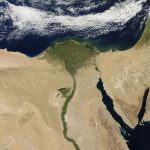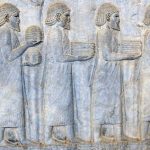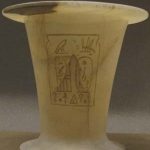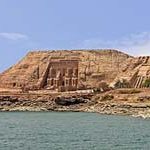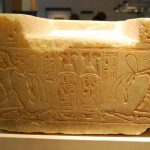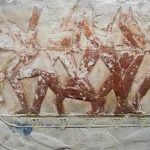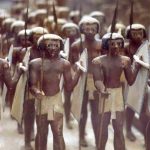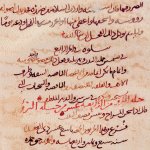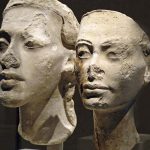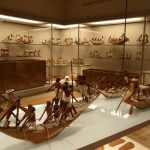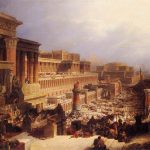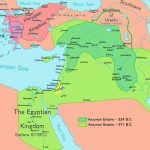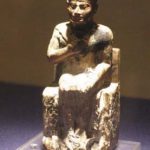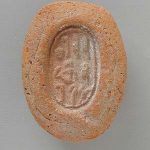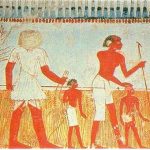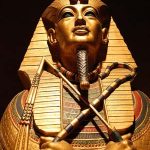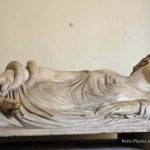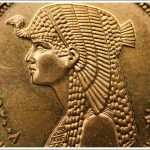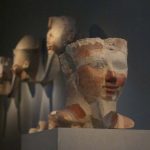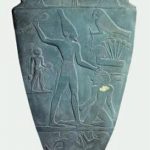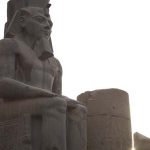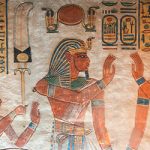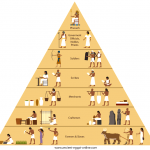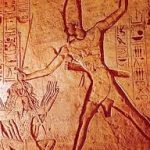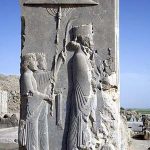Ibn-Khaldun
Nearly four centuries would elapse after Al-Muqaddasi before Ibn-Khaldun enters the frame of Islamic scholarship to set up the foundations for our modern social, economic, historical and political sciences. There is no need to go into the life and works of Ibn Khaldun here; so much good quality material is available elsewhere, which is needless to repeat here. Should we even try to sum up Ibn Khaldun’s accomplishment, a whole large book is necessary, which is far beyond the remit of this essay. There are a couple of web-sites devoted to him and his works, some of them quite good, and a few excellent. These are to be consulted by any person seeking to know more about Ibn Khaldun. Here, we only focus on a couple of points or issues which take priority. First and foremost many people tend to set aside the fact that the Muqadimah is only part of the voluminous work Kitab al Ibar. The latter refers to the whole work of Ibn Khaldun including the Muqaddima. Its long title is as follows: The Book of Lesson (Ibar) and Achievements of Early and Subsequent History, Dealing with the Political Events Concerning the Arabs, Non-Arabs, and the Supreme Rulers who were Contemporary with Them. The Kitaab al-Ibar is a multivolume effort that, in his words, sets forth “the record of the beginning and the suite of the days of the Arabs, Persians, Berbers, and the most powerful of their contemporaries.”[125] Its Introduction, Butterworth competently sums up:
Consists of six very long chapters that explore the character of human civilization in general and Bedouin civilization in particular, as well as the basic kinds of political associations, and then the characteristics of settled civilization, the arts and crafts by which humans gain their livelihoods, and, finally, the different human sciences.”[126]
Ibn Khaldun starts by explaining the merit of history and how to go about writing it, and also the purpose for writing it;
 [To get] “at the truth, subtle explanation of the causes and origins of existing things, and deep knowledge of the how and why of events.”[127]
[To get] “at the truth, subtle explanation of the causes and origins of existing things, and deep knowledge of the how and why of events.”[127]
Ibn Khaldun acknowledges a problem with the way history has come down to us:
 Many unqualified people have trammeled with the books of history written by competent Muslim historians; they have introduced tales of gossip imagined by themselves as well as false reports. Moreover, other historians have compiled partial reports of particular dynasties and events without looking to the way things have changed over time, without looking at natural conditions and human customs. Consequently, Ibn Khaldun considers his task to be that of showing the merit of writing history, investigating the various ways it has been done, and showing the errors of previous historians. What needs to be known, and thus what he sets out to make known, are “the principles of politics, the nature of existent things, and the differences among nations, places and periods with regard to ways of life, character, qualities, customs, sects, schools, and everything else … plus a comprehensive knowledge of present conditions in all these respects … complete knowledge of the reasons for every happening and … [acquaintance] with the origin of every event.”[128]
Many unqualified people have trammeled with the books of history written by competent Muslim historians; they have introduced tales of gossip imagined by themselves as well as false reports. Moreover, other historians have compiled partial reports of particular dynasties and events without looking to the way things have changed over time, without looking at natural conditions and human customs. Consequently, Ibn Khaldun considers his task to be that of showing the merit of writing history, investigating the various ways it has been done, and showing the errors of previous historians. What needs to be known, and thus what he sets out to make known, are “the principles of politics, the nature of existent things, and the differences among nations, places and periods with regard to ways of life, character, qualities, customs, sects, schools, and everything else … plus a comprehensive knowledge of present conditions in all these respects … complete knowledge of the reasons for every happening and … [acquaintance] with the origin of every event.”[128]
In a work published in 1975, Shrait, the author, judiciously noted how Ibn Khaldun’s
 Eminence in medieval civilization has to be linked to his adherence to the pure Islamic intellectual tradition to which he was exposed in the Muslim Maghreb. The Muslim Mashreq was less immune from the widespread distorting influences from mythical, magical and metaphysical Greek, Israelite, Persian or Christian doctrines and beliefs. The purer Islamic cultural context in the Maghreb must have played a significant role, [according to Shrait] in producing the clarity, the Positivism and the originality of Ibn Khaldun’s sociological thought.”[129]
Eminence in medieval civilization has to be linked to his adherence to the pure Islamic intellectual tradition to which he was exposed in the Muslim Maghreb. The Muslim Mashreq was less immune from the widespread distorting influences from mythical, magical and metaphysical Greek, Israelite, Persian or Christian doctrines and beliefs. The purer Islamic cultural context in the Maghreb must have played a significant role, [according to Shrait] in producing the clarity, the Positivism and the originality of Ibn Khaldun’s sociological thought.”[129]
Here, as Dhaouadi remarks, Ibn Khaldun sees Islam as a corrective social force, or a force for the good of society, and Islam’s manifestly hostile position with regard to excessive materialism reinforces Ibn Khaldun’s belief in the validity of his cyclic theory of civilizations.[130] Islam in its essence, let alone through the behaviour of the Prophet and his Companions, Abu Bakr and Omar, in particular, utterly shuns excessive material possessions and rabid consumption. In fact, whether the Prophet, or the first two Caliphs, they all distinguished themselves not just by their probity but also their simplicity. In regard to Omar, for instance. at the height of Islamic power, when the immense riches of Byzantium and Persia were reaching Madinah, the Caliph retained the same modest needs. When one day he was entrusted chests filled with precious stones from the treasures of the Great Persian King, the Caliph in earnest asked the messenger to take the chests away, sell the contents and distribute the proceeds among the soldiers.[131] Prisoners-of-war brought to Madinah ‘expected to see palaces and imperial pageantry such as they had witnessed in Constantinople or in (Persia’s) Ctesiphon. Instead, in the glaring, dusty square of a little mud-brick town, they would find a circle of Arabs sitting on the ground. One of them, a tall lean man, barefoot and wearing a coarse woollen cloak, would prove to be ‘the world’s most powerful emperor,’ Caliph Omar.[132] He slept on a bed of palm leaves and had no concern other than the maintenance of the purity of the faith, the upholding of justice and the ascendancy and security of Islam.[133] Ibn Khaldun himself led a life of utter simplicity, nothing is known of him having ever owned even a house, or any sort of possession, his science, in fact, his only possession. Ibn Khaldun does compare and consolidate his own theory of human civilization’s downfall with the Qur’anic statement, spelled out in the Muqqaddimah:
 When we decide to destroy a population, we first send a definite order to those among them who are given the good things of this life and yet transgress; so that the word is proved true against them: then We destroy them utterly.”[134]
When we decide to destroy a population, we first send a definite order to those among them who are given the good things of this life and yet transgress; so that the word is proved true against them: then We destroy them utterly.”[134]
 Figure 5. An autograph of Ibn Khaldun (upper left corner) in a manuscript held in Istanbul (MS C, Atif Effendi, 1936). (Source) |
Whilst being strongly opposed to quantitative materialistic development, Ibn Khaldun believes, in what Dhaouadi terms ‘qualitative development: the preservation of the primitive (innate) goodness of human nature, strong social solidarity and religious ethics.’[135]
Related to this is another central element of Ibn Khaldun thought. He explains that the rise of the Arab-Muslim civilization was the result of a combination of true Bedouin forces (al-asabiyya, bravery, and similar traits) and of the new forces (Muslim brotherhood/solidarity, sacrifice for the greater cause) which Islam had brought with it to the New Society. Bedouin lifestyle was essentially good by nature, as well as moderate in its materialistic needs, hence close to Islam, which, as described in the Qur’an, is the religion of al-fitrah (innate human goodness) and also of moderation.[136]
Sedentary society, on the other hand, compares poorly in Ibn Khaldun’s view. He finds that a sedentary, over-materialistic environment corrupts human nature and, consequently, undermines the basis of Islamic values, which eventually led to decline of Arab-Islamic civilization.[137]Ibn Khaldun insists that both religiosity and bravery are greatly undermined by sedentary environmental conditions. In his view, excessive materialism has negative effects not only on human civilizations and societies, but on the personality of the individual as well.[138] In such civilizations and societies, the individual tends to become more egoistic; his own materialistic interests take priority, which hence causes an increased rate of deviance and crime in materialistic societies.[139] Under the pressure of satisfying their materialistically oriented needs, sedentary individuals often appear to be ready to do away with society’s means of social control. Thus, the breakdown of the socio-cultural rules in sedentary societies is strongly linked in the Arab/Muslim society of Ibn Khaldun’s time to the materialistic over domination of the individual.[140]
Ibn Khaldun writes:
Corruption of the individual inhabitants is the result of painful and trying efforts to satisfy their needs caused by their luxurious customs; the result of the negative qualities they have acquired in the process of satisfying (those needs), and the damage the soul suffers after it has obtained them. Immorality, wrong-doing, insincerity and deceit for the purpose of making a living in a proper or improper43 manner has increased among them. The soul comes to think about (making a living), to study it, and use all possible deceit for that purpose. People are now devoted to lying, gambling, cheating, fraud, theft, perjury, usury… Thus, the affairs of people are disordered, and the affairs of the individual deteriorate one by one, the city becomes disorganized and falls into ruin.”[141]
Ibn Khaldun clearly insists on the following, though. Compared with Bedouin life style, Islam as a system has more to offer for the qualitative development of society. On the materialistic side, the Islamic faith asks for the practice of moderation, not the severe restrictions by which the Bedouins were obliged to live. While the Bedouin community is a somewhat inwardly closed system, Islam, as a religio-social system, is outwardly open to all humans, regardless of their language, colour, creed, and other distinctive features.[142] To Ibn Khaldun, finally, societies cannot survive if their existence was not monitored and controlled by religious ethics; these can help maintain the social order of a civilization, keeping it in balance.[143]
Ibn Khaldun on Taxing Farmers
Extracts from Ibn khaldun’s Muqqadima on his passage on the cause which increases or reduces the revenues of empire, in Bulletin d’Etudes Arabes, Vol 7, pp. 11-15, derived from De Slane’s edition, vol II, pp. 91-4:
The text on Ibn-Khaldun‘s attitude towards taxing farmers is simple and yet perfectly constructed as to the aims and the construction of the argument.
In an empire that has just been founded, taxes are light, and yet bring much revenue. However, when it (the empire) approaches its end, they become heavy and bring very little revenue. Here is the reason: if the founders of the empire follow the road of religion, they only apply the taxes authorized by Divine law, that includes Zaquat (alms), Kharaj (land tax), and Djizia. The amount of each is not too hard to bear, as everybody knows that tax on corn and livestock is not heavy; it is the same for Djizia and Kharaj. The rate of such taxes is fixed by law and so cannot be raised. If the empire is founded on a tribal system and conquest, civilisation must have been first that of a nomadic sort. The impact of such civilisation is to engage the rulers towards kindness, forbearance, and indifference towards the acquisition of wealth, except in rare cases. Thus, taxes and personal duties which finance the revenues of the empire are light. This being the case, the subjects carry their tasks with energy and enthusiasm. Work on the land grows because everyone wants to make the most of the lightness of the taxes, and this in turn raises the numbers of those engaged in the task, hence raising the revenues of the state.
When the empire has endured a rather long period, under many successive sovereigns, the heads of states acquire more ability in their business, and lose with their habits (links with) nomadic life. Then simplicity of manners, forbearance, and casualness which characterised them hitherto disappear. The administration becomes more demanding and harsh; sedentary customs promote shrewdness amidst state employees, and they become more able men of business. And as they experience well being and pleasure, they also indulge in a life of luxury, and acquire new needs. This drives them to raise taxes on all, including farmers. They want taxes to bring in more revenues to the state. They also impose duties on farm products on sales in towns and cities.
Expenditure on luxuries gradually rise in the government, and as the needs of the state increase, taxes rise further, and become heavier to bear by the people. This charge appears, however, as an obligation due to the fact that the increase has been imposed gradually, without it being too much noticed, and who did it remaining unseen. The increase, thus, taking the form of an obligation long accustomed to. With time, taxes grow beyond the bearable, and destroy in farmers the urge and love for work. When they compare their charges and expenses with their profits, they become disheartened; and so many leave farming. This leads directly to a fall in taxes collected by the state, which affects its revenues. Sometimes, when the heads of states notice such a fall, they believe they can resolve it by raising taxes further, and so they do more and more until the point is reached whereby no profit could any longer be made by farmers. All charges and taxes leave no hope whatsoever of any profit. In the meantime, the government is still raising taxes. Farming is now abandoned. Farmers leave the land which has become worthless.
All ill consequences fall upon the state… The reader thus gathers that the best way to make agriculture prosper is to reduce as much as possible the charges that the state imposes. Then farmers work with enthusiasm knowing the great benefits they derive-and God is the Master of all Things.
Ibn Khaldun and the Right Ruler
Ibn Khaldun is realistic enough to realize we don’t live in a perfect world, far from it in fact. The vagaries of life must have taught him some harsh lessons, which without making him profoundly cynical, had left a touch of realism in his thought which might ‘offend’ purists and idealists. We see this in respect to his view of the right, not perfect ruler.
He explains that a noteworthy example is his observation that a good political leader should be neither too stupid nor too clever. Excessive intelligence and cleverness renders him incapable of understanding normal people; he then tends to make demands on his clients that they can neither comprehend nor meet.[144]
An alert and very shrewd person rarely has the habit of mildness … The least of the many draw- backs of alertness [in a ruler] is that he imposes tasks upon his subjects that are beyond their ability, because he is aware of things they do not perceive and, through his genius, foresees the outcome of things at the start … The quality of shrewdness is accompanied by tyrannical and bad rulership and by a tendency to make the people do things that it is not in their nature to do. The conclusion is that it is a drawback in a political leader to be [too] clever and shrewd. Cleverness and shrewdness imply that a person thinks too much, just as stupidity implies that he is too rigid. In the case of all human qualities the extremes are reprehensible and the middle road is praiseworthy.”[145]


